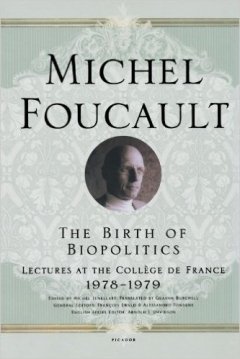 The 11th History of Recent Economics conference (HISRECO) took place at the University of Lucerne on April 21-22, 2017. As a co-organizer of this conference, with my dear friends Pedro Duarte and Verena Halsmayer, I am not well placed to express an opinion on it. Let’s just say that we haven’t entered the period of decreasing returns yet. We had a very nice roster that included historians of economics, historians and STS scholars, and that my impression last year that the distance between those communities was decreasing has not been proven wrong. This is not to say that all the papers that were presented were perfect: they need not be, anyway. But the free-form discussions we had were as enthralling as ever. A quick summary follows.
The 11th History of Recent Economics conference (HISRECO) took place at the University of Lucerne on April 21-22, 2017. As a co-organizer of this conference, with my dear friends Pedro Duarte and Verena Halsmayer, I am not well placed to express an opinion on it. Let’s just say that we haven’t entered the period of decreasing returns yet. We had a very nice roster that included historians of economics, historians and STS scholars, and that my impression last year that the distance between those communities was decreasing has not been proven wrong. This is not to say that all the papers that were presented were perfect: they need not be, anyway. But the free-form discussions we had were as enthralling as ever. A quick summary follows.
Harro Maas (University of Lausanne) wrote on forecasting in the Netherlands, from the early postwar years of the Centraal Planbureau (CPB) to the aftermath of the 2008 crisis. He put in contrast the practices of scientific modeling and the idiosyncratic practices of the quacks. The latter were rehabilitated as the only ones who managed to predict the Great Recession.
Marion Ronca (University of Zurich) talked about Eugen Böhler, the Swiss economist, and his influence on the economic policies of his country. Converted to Keynesianism after fighting against it, Böhler was nonetheless an intellectual who did not fit into the mainstream economics of his time. At the end of his year, he used Carl Jung’s concept of mythos to criticize the discipline.
Laetitia Lenel (Humboldt University of Berlin) studied the first years of the NBER, showing that not only the methodologies used there differed from those adopted at the Cowles Commission but the views of the role of policy as well. While Koopmans and his allies’ endeavors aimed at advising the government, Mitchell and Burns were interested more in collecting facts and educating the public at large.
Sarvnaz Lotfi (Virgina Tech) provided an account of Research and Development (R&D) in the postwar period. Her project is to contrast the views of R&D as the main explanation of macroeconomic growth (following Solow’s residual) with its practical value as shown in accounting, management and law. Ultimately, there is more disparity than consensus in the way scholars and policymakers envisage the value of R&D to a nation.
Roger Backhouse (University of Birmingham) attempted to assess MIT economist Paul Samuelson’s role in influencing the economic policies of John Kennedy. Samuelson did not participate directly in policy advising, choosing instead to reflect on policy through his textbook and interventions in the press. This illustrates his cautious, even ambiguous, stance towards politics.
Cleo Chassonnery-Zaigouche (University of Lausanne) provided an alternative account of the role of economists in the courtroom, focusing more specifically on James Gwartney’s expertise in racial and gender discrimination on the labor market. The way through which truth is assessed in the court is different from the way it is done in an academic setting, affecting the view of economics as a science in the process.
Francesco Sergi (University of Paris-Sorbonne) studied the standard, internalist, history of recent macroeconomics, that is contained in the manuals used in central banks. He argues that these narratives, which are aimed at standardizing practices, also tend to “decontest the contestation” existing in the field. In his view, new neoclassical macroeconomics – needs to be disaggregated and it is the duty of historians to bring more dissent to the discipline.
Steve Medema (University of Colorado at Denver), finally, wrote on the place of non-welfarism in the debates over the Coase theorem. While economists typically tried to exclude non-welfarist – i.e. social justice related – arguments in the postwar period, those were ubiquitous in the pieces that expressed criticism toward Coases’s idea of a market-based solution to environmental issues. Medema argues that non-welfarist arguments can be considered as proxies to ideology.
*
* *

On a sadder note, we have learnt during the first day of the conference that the great historian of economics and longtime History of Political Economy Editor Craufurd Goodwin had passed away. Goodwin’s vigorous efforts to promote the history of economics did not consist in faint discourses about the vitality of the field but, rather, in his constant allegiance to the highest possible academic standards. The mere possibility of a conference like Hisreco is a testament to the excellent scholarship his endeavor helped to encourage. He was one of the true giants of our discipline and will be greatly missed. Our condolences go to his wife, Nancy, and his friends and colleagues at the Center for the History of Political Economy at Duke University.



 History of Recent Economics Conference University of Lucerne – April, 21-22 2017
History of Recent Economics Conference University of Lucerne – April, 21-22 2017 At the latest
At the latest  t still, at the very least, mistaken. For at least one part of the argument is true: economists, on the whole, are not interested in the history of their field and are not likely to be interested in it anytime soon. A bibliographic research I have undertaken over the past few years with my friend and fellow Pedro Duarte – forthcoming in the
t still, at the very least, mistaken. For at least one part of the argument is true: economists, on the whole, are not interested in the history of their field and are not likely to be interested in it anytime soon. A bibliographic research I have undertaken over the past few years with my friend and fellow Pedro Duarte – forthcoming in the  On the other hand, sociologists, historians, political scientists, and even management scholars are increasingly drawn to the history of recent economics. They do so because they feel that economics is an important part of today’s social, political and cultural environment and they want to understand it. Of course, there’s nothing new about this. Another friend and colleague of mine, Loïc Charles, has done work on 18th century economics with practicing historians, showing how economic thinking was intertwined with a lot of things happening at the time: international trade (including, most notoriously, slave trade), the colonization of the Americas, the French revolution, etc. But what is specific to the recent – postwar – period, is that economic thinking is not just mixed with other types of knowledge and practices, but increasingly, is THE knowledge which is used as a way to ground, to legitimize all knowledge and practices. This recent move toward the economization of every aspect of our society is what researchers have come to designate as “neoliberalism”, and this is the one of the main concepts that makes the study of postwar economics a possibly interdisciplinary venture, one that has a lot of chance to attract readers and create scholarship.
On the other hand, sociologists, historians, political scientists, and even management scholars are increasingly drawn to the history of recent economics. They do so because they feel that economics is an important part of today’s social, political and cultural environment and they want to understand it. Of course, there’s nothing new about this. Another friend and colleague of mine, Loïc Charles, has done work on 18th century economics with practicing historians, showing how economic thinking was intertwined with a lot of things happening at the time: international trade (including, most notoriously, slave trade), the colonization of the Americas, the French revolution, etc. But what is specific to the recent – postwar – period, is that economic thinking is not just mixed with other types of knowledge and practices, but increasingly, is THE knowledge which is used as a way to ground, to legitimize all knowledge and practices. This recent move toward the economization of every aspect of our society is what researchers have come to designate as “neoliberalism”, and this is the one of the main concepts that makes the study of postwar economics a possibly interdisciplinary venture, one that has a lot of chance to attract readers and create scholarship. So, is it convincing? Well, let’s take for instance Béatrice’s
So, is it convincing? Well, let’s take for instance Béatrice’s  Last week, I spent a few days in the Dalton-Brand Research Room, at Duke University, skimming through
Last week, I spent a few days in the Dalton-Brand Research Room, at Duke University, skimming through  Taking a quick break from my work in the
Taking a quick break from my work in the 


 The beginning of a new year is always the occasion to reflect on the recent past, as the posts of my fellows
The beginning of a new year is always the occasion to reflect on the recent past, as the posts of my fellows  This is not only a metaphor. The
This is not only a metaphor. The  There is a frequent bias in the history of science – and the history of economics alike. We are mainly interested in people who have published, and particularly in people having published in the main field we are interested in. People having greatly contributed to the development of departments – think of Aaron Director and Gregg Lewis at Chicago, for instance – or operating at the crossroads of disciplines are often neglected. When my co-author
There is a frequent bias in the history of science – and the history of economics alike. We are mainly interested in people who have published, and particularly in people having published in the main field we are interested in. People having greatly contributed to the development of departments – think of Aaron Director and Gregg Lewis at Chicago, for instance – or operating at the crossroads of disciplines are often neglected. When my co-author  my surprise to read this in one of their latest columns:
my surprise to read this in one of their latest columns: Thanks to some friends journalists, I got an invitation for a press projection of
Thanks to some friends journalists, I got an invitation for a press projection of